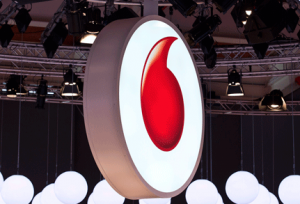
After more than 40 years of operation, DTVE is closing its doors and our website will no longer be updated daily. Thank you for all of your support.
Vodafone expects to lose half of German MDU TV customers

Source: Vodafone
Vodafone now expects to lose about half of its 8.5 million multi-dwelling unit (MDU) TV customers in Germany as a result of the change in the law that prevents landlords from bundling TV services with rental agreements.
The change in the law is scheduled to take place in July. Vodafone said it had now started migrating end users to new individual contracts at scale following its earlier trials. On the basis of its experience to date, it said, it now expects to retain about 50% of those homes.
As of the end of March – Vodafone’s fiscal FY24 – the cable and telecom giant had “actively retained” 1.9 million households, while its total TV base declined by close to one million over the financial year, mostly due to the MDU changes, which kicked off in the quarter to March. In the final fiscal quarter to March alone, Vodafone lost 653,000 TV customers in Germany, taking its total down to 11.758 million.
Speaking on the company’s earnings call after it posted its FY numbers, Vodafone CEO Margherita Della Valle said that the MDU losses represent “a very big impact of course” but added that she was “very pleased with the strength of our partnership with the housing associations that has allowed very strong cooperation in addressing the transition”.

Margherita Della Valle
Della Valle said that the 1.9 million MDU customers that the company had already transitioned to individual contracts represented “about 60% of the addressable base that we have processed through in in that phase” and that it was this that gave the company “the confidence to say that we expect to land on around 50% penetration”.
Vodafone expects to take a €400 million revenue hit from the transition – fully half of the €800 million it currently takes from the MDU market.
CFO Luka Mucic meanwhile said that the MDU transition was “adding a sizeable headwind” for the company in the current financial year, with a negative performance in Germany on the cards.
However, he said that, looking forwards, “with this transitional year and the MDU headwinds out of the way”, the company expected FY26 to be a year of top line and earnings growth.
VodafoneZiggo’s future and cable vs fibre in Germany
Fiscal 2025 will be a major year of transition for Vodafone, not just because of the MDU transition in Germany but because of the impact of its planned exit from Italy and the planned merger of Vodafone UK with Three.
Asked about the company’s other major joint enterprise, its JV with Liberty Global in the Netherlands, Della Valle said that “we are pleased with where we are” with “a strong asset in a good market”.
Della Valle indicated that Vodafone does not have plans to acquire Liberty’s share of the JV, noting that her “focus is going to be on completing the three deals we have announced in Europe in the last year”.
Vodafone has just set up a separate division for ‘non-controlled assets’ including VodafoneZiggo, with Della Valle commenting that “we need to manage those assets differently from the controlled one”.
On Vodafone’s fibre JV with Altice in Germany, OXG Glasfaser, Della Valle indicated that the company was happy to keep fibre investments off its balance sheet. The JV is currently deploying fibre in six cities including Dortmund.
Answering another analyst question, she said Vodafone did not intend to migrate its core German cable infrastructure to fibre, pointing to “good dynamics in customer satisfaction in Germany”.
Overall, Vodafone posted revenues of €36.7 billion for the full year, down 2.5%, and adjusted EBITDAaL of €11 billion, down 11.3%.


